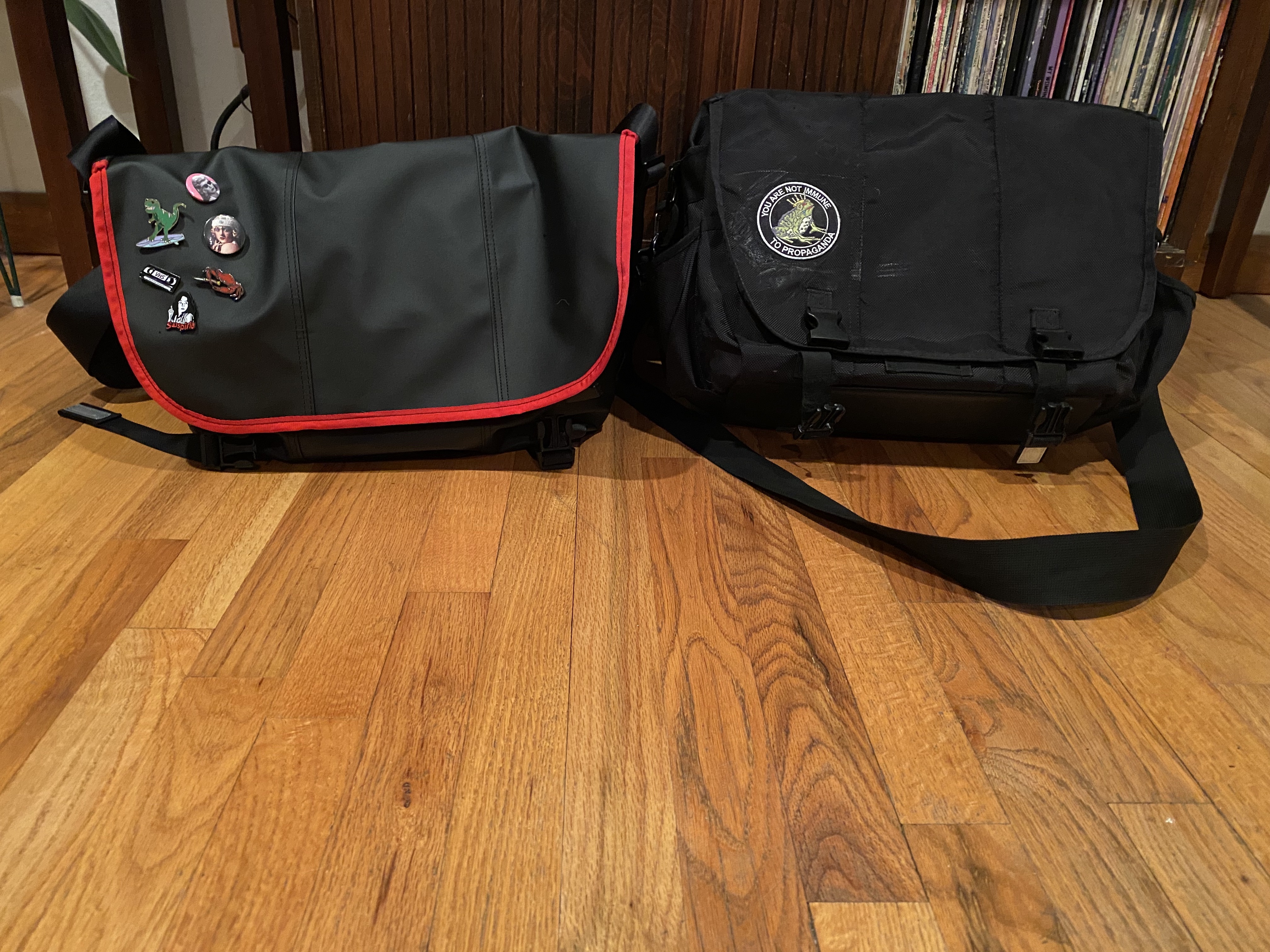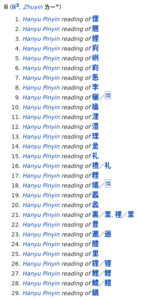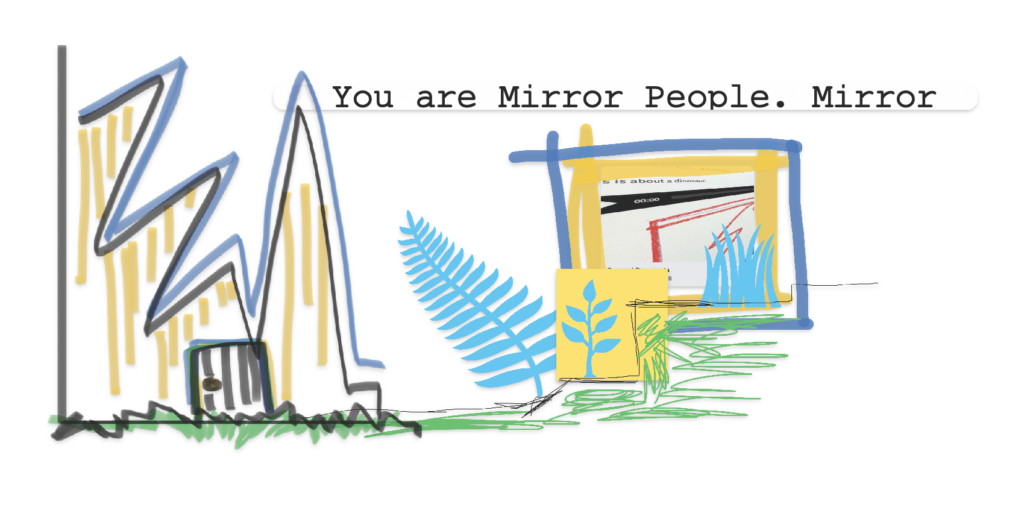About 15 years ago, my brother gave me the bag on the right side of this picture. He’d had it for about five years and did an upgrade. I didn’t have much money then and was using my old laptop bag, and I was so thankful when he gave me his old side satchel. I instantly fell in love with it, as it had many pockets and compartments. It amazes me that the old bag lasted 20-some years. When it came into my possession, I used it almost daily. I traversed the country and even the world multiple times with it. The only period I didn’t use it was during the lockdowns. This year, it finally started to give out, and I had to replace it. The new bag arrived yesterday, and I hope it is as good as the last because I voided the warranty on it by puncturing its waterproof material on the flap with pins that lived on my old bag. 
Category Archives: the mindlab
Anki: The Path to Super Saiyan Memory
Anki is an Open-source flashcard application, with desktop and mobile versions, and a sync state function between devices. The idea is simply to outsource physical flashcards into an application which then automates “spaced repetition”. The purported result is better memorization in less active time studying.

The flashcard process goes like this: Attempt to get it right, then award yourself a fail, where you put it back in today’s pile, or give it a pass, where you put it forward a certain number of days. If this is the first time you’re seeing this card, it might only go forward 1 day. But, given that you succeed with recall next time you see the card, you’ll send it forward the previous interval times 2.5. This continues the next time you encounter the card, inflating the interval each time (today I just sent one 1.5 years into the future). You can adjust that down by marking it “Hard” or forward by marking it “Easy”. Fail the card and it all starts again. I do buy into this process well enough. I can’t tell you how much time and effort I’ve wasted in college going over stuff I already know and got fatigued/bored by the time I get to the stuff I actually need reminding.

I’ve used Anki for a bunch of years now, but let’s get to that in a minute. Even though I’ve used it for a while, I recently expanded my usage due to reading an article about it, which I can’t even find now. Many articles say stuff like “Superpower” in the title. There’s a ton of hype online when people think about the possibilities of nearly effortlessly learning random things like all the bones in the human body or every last street name in San Francisco. Sure. But, the article did make me think that I can memorize more things I care about, like Linux/Vim/tmux commands. Perhaps going for an augmented memory at age 45 doesn’t show great timing. Or, perhaps, it shows perfect timing.
I first started using Anki closer to a decade ago while trying to brush up on and maintain some of my Chinese character knowledge. You can find shared decks made by others, so I went ahead and looked up one for the 3000 most common characters. Easy-peasy, right? It actually turned out to be a disaster.
The problems were 2-fold. First, and you’ll see this posted everywhere as a critique and caveat of Anki, is that Anki is not a learning platform. It’s just flashcards, a way to solidify learned content into memory. Contrast this with some of the language learning apps, which present content contextually if not just in some sort of explanatory way. Once understood, then flashcards are appropriate.
Next, whoever made the Chinese character decks I used (and now use) clearly has no expertise in learning or teaching Chinese. Whoever made the decks clearly took lists of Chinese characters and made 2 cards for each: one for character recognition and one for character recall. Character recall is the problem here, because simply putting the single-syllable romanized “word” isn’t enough to differentiate it from perhaps many other characters with the same sound.

I could go on about this, but it recalls something Tim once noted to me about Wikipedia’s problem. It’s a great and valuable tool for being free, but it’s often written by non-experts and therefore contains a good deal of inaccurate or imprecise info. Fortunately for me, I am someone who happens to have some expertise in Chinese language learning. I was able to just add context to the single-syllable “words” in the character recall decks. The upside to Anki not being a specially-curated enterprise app is you can always edit decks as you see fit.
What all this has to do with my previous post should be pretty clear. I promised my minimal effort plan to learn and retain the a bunch of historical sword morphology, but I had to explain Anki a bit first. Next post, I’ll go over creating an Anki deck for the Oakeshott Typology.
How to Sit Again

Patch Notes
- M32 EG > SubH VCO Sub
- M32 KB > SubH VCO 1
- SubH SEQ 1 Clk > M32 Tempo
Plexamp
Roughly one year ago, I wrote some thoughts about music.1 Shortly thereafter, I finally paid for PLex Pass. I had asked Mike and Tom if it was decent and they seemed a bit on the fence; if I didn’t have a big Plex collection, it probably wasn’t worth. I broke down and bought the lifetime version to fix some annoyance I was having.2
Little did I know, Plex Pass gives you access to Plexamp, a music playing app. Plexamp plays music files in your Plex library and will stream to your phone if you are away from home. It has some nice features like per output device EQ and nice metadata display, if you are into that. But otherwise, seems like just another music app. Big deal.
The killer feature though is the sonic analysis. This takes forever on a big library, but once it’s done, Plexamp can ‘autoplay’ music in your library keeping to a similar genre or sound. It’s much like any of the algorithmic playlist features on Spotify and the like, but it’s for your music. It also enables rotating playlists made up of a few similar artists, so you always something kind of fresh. Obviously, on small libraries, this probably isn’t that great, but on mine (around 1700 albums), it’s pretty cool. If you have a Tidal subscription, there are certain autoplay lists that will also mix in music that you don’t have in your collection.
The other great feature is that it can cast from your Plex server to other endpoints, like Airplay, Sonos speakers, or other Plexamp installs. I have a raspberry pi headphone setup running Plexamp by the couch. I can play music from the server to the pi, while using my phone as a remote browser. It’s pretty reliable and seamless.
I highly recommend Plexamp for the few of us who still have large music libraries. I’ve tried a bunch of different apps on the phone that all have some nice features, but Plexamp seems like the most comprehensive and polished of them if you are willing to break away from the Apple Music paradigm. While I still use Apple Music (quite a lot actually), Plexamp is pretty low commitment since it uses a server as the hub. A server I’m already running.3 It also stacks up quite nicely against apps like Roon. Roon does have some attractive features but it also has a MASSIVE price. I’ve played around with the demo and am not really tempted.
It’s weird to me that Plex is sinking money into this niche app while at the same time slowly ruining their mainstream app by pushing weird social sharing shit and live TV, features that no one wants. But here we are.
- Time for my yearly blog post, the one I write during vacation around the holidays. I’m 3 days early this year, as the last two years I posted on 12/23. ↩
- Software subscriptions really annoy me. I almost always buy the ‘lifetime’ version if I can. ↩
- I have Plex pointed to the same location where my Apple Music library resides, so no files are duplicated. ↩
Bear Sled

Mirrors

3rd Deck

Dino Days
This is about a dinosaur.

Lovey Dovey by nightmayor
Here is a cool music-vid from some people I know in the place where I live. It’s called “Lovey Dovey,” and the band is nightmayor.
1010
Here’s a short song I did this morning.